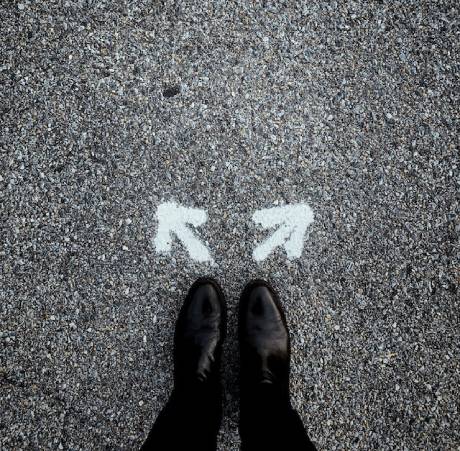Many factors constitute a solid poker player, but the two most important are knowledge of proper poker strategy and awareness of how human psychology works (including cognitive biases). Nowadays, most poker players are constantly looking for ways to improve their game and gain an edge over their opponents.
On our blog, we’ve covered many poker strategy topics, from the logic behind the continuation betting to a basic explanation of game theory optimal concepts.
Still, one crucial yet undervalued aspect of mastering poker is understanding the influence of cognitive biases on your decisions.
What is cognitive bias?
It is a systematic pattern of deviation from rational judgment in which individuals unconsciously process and interpret information in a way that leads to errors, misperceptions, or illogical conclusions. These biases often result from mental shortcuts, heuristics, or emotional influences that can hinder objective decision-making and affect various aspects of an individual’s life, including making choices in games like poker.
In this article, we will delve into three popular cognitive biases; gambler’s fallacy, confirmation bias, and overconfidence bias, and explore ways to counteract these fallacies and improve your human judgment and overall poker strategy.

Gambler’s fallacy may be as hurtful as the name suggest
Gambler’s fallacy, also known as the Monte Carlo fallacy or the fallacy of the maturity of chances, is the mistaken belief that past events impact future outcomes in a random process. In poker, this fallacy can manifest in several ways. For example, a player might believe that a specific card is “due” to be dealt because it hasn’t appeared in a while or that their luck is about to change after a losing streak.
Understanding that each poker hand is an independent event is crucial for countering the gambler’s fallacy. The odds of any particular card being dealt or any specific combination occurring remain constant, regardless of past outcomes.
Remember that whenever you lose a “flip”, or your aces are cracked preflop, any amount of luck or bad luck you have experienced does not change the future probabilities for similar situations.

The human brain loves confirmation bias
Confirmation bias is the tendency to search for, interpret, favor, and recall information in a way that confirms one’s pre-existing beliefs or hypotheses. In poker, this can cause players to overlook or misinterpret evidence that contradicts their expectations or strategies. For example, if a player believes that their opponent is bluffing, they may ignore signs that suggest their opponent has a strong hand, such as aggressive betting or physical tells.
The key to counteracting confirmation bias is adopting a more objective approach when evaluating your opponents’ actions and your own decisions. Consider all available information and be open to adjusting your initial assumptions based on new evidence. Additionally, actively seek out opposing viewpoints and engage in self-reflection to identify and address your own biases. This will help you to make more informed decisions at the poker table and avoid falling into the trap of confirmation bias.
Don’t fall victim to overconfidence bias
Confidence in your abilities is necessary to be a solid poker player; however, being overconfident can easily hinder your thought process.
Overconfidence bias refers to the tendency to overestimate one’s abilities, knowledge, or chances of success. In poker, this can lead to poor decision-making, as overconfident players may take unnecessary risks, fail to adapt their strategies or underestimate their opponents. For example, inexperienced players often overvalue their hands and lose big pots to more patient opponents when they could play more cautiously.
To mitigate the effects of overconfidence bias, practice self-awareness. Recognize that no one is immune to mistakes and that learning is a lifelong process. Regularly evaluate your poker skills and knowledge, and be willing to adjust your strategies as needed. Additionally, consider seeking feedback from more experienced players or studying poker resources to gain a broader perspective and improve your understanding of the game.

So, how should you counteract cognitive biases in poker?
Awareness
The first step to counteracting cognitive biases is to be aware of their existence and potential impact on your decision-making. Educate yourself on common biases and be mindful of their potential influence at the poker table (this and the next articles on our blog should be very helpful).
Focus on the present
Avoid dwelling on past hands or outcomes, and focus on the current situation. Make decisions based on the present odds, probabilities, and available information rather than being swayed by past events or emotions.
Keep emotions in check
Emotional decision-making can intensify the influence of cognitive biases. Practice emotional control by taking deep breaths, staying calm under pressure, and avoiding tilt. In other words: keep your mindset healthy.
Use a systematic approach
Develop a structured decision-making process that involves evaluating all available information, considering alternative scenarios, and assessing each option’s potential risks and rewards. This can help reduce biases’ influence and promote more objective decision-making.
Record and review your games
It should go without saying, but just in case, we’ll repeat it: keep a record of your poker sessions, including key hands, decisions, and outcomes. Regularly review your play to identify patterns, areas for improvement, and potential biases in your decision-making. This self-reflection can be invaluable in addressing cognitive biases and enhancing your overall poker strategy.
Here you’ll find why tracking software is so invaluable.
Seek feedback and learn from others
Engage in discussions with other poker players or join online poker forums to gain new perspectives and insights. Be open to constructive criticism and use it as an opportunity to learn and grow.
Stay informed
Continually expand your poker knowledge by watching videos and participating in training programs. Staying informed can help you to recognize and address cognitive biases more effectively and improve your overall understanding of the game.
The awareness of cognitive biases is the first step to beating them
Gambler’s fallacy, confirmation bias, and overconfidence bias are common cognitive pitfalls that can hinder your poker performance. By understanding these biases and taking proactive steps to counteract them, you can sharpen your decision-making skills and increase your chances of success at the poker table. We’re going to cover other popular biases to help you understand your mental leaks better.
Remember, the journey to becoming a successful poker player is a continuous process of learning, adapting, and self-improvement. We’ve already helped hundreds of players on this journey, and we can help you too.
Check out our offer and join Smart Spin, the best online poker school out there!
